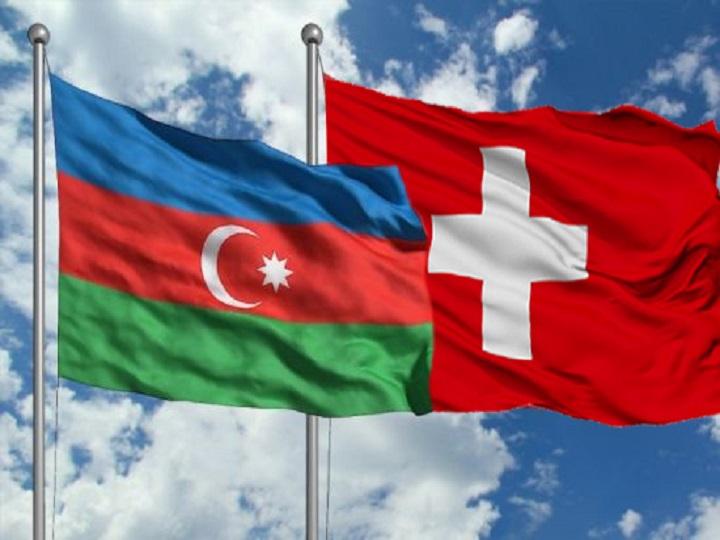BAKU, Azerbaijan, August 16. President of Swiss
Azerbaijani Association for Friendship, Culture, and Solidarity
Alekper Aliyev has called for the attention of the UN bring to the
ongoing and pressing concerns related to the post-war situation
between Azerbaijan and Armenia, Trend reports.
‘Following the cessation of hostilities in 2020, Azerbaijan
extended an olive branch, suggesting a peaceful agenda aimed at
promoting regional stability and cooperation. Our nation has
consistently reiterated its earnest wish to establish enduring
peace and harmony between our countries. A testament to
Azerbaijan’s commitment to regional collaboration is our robust
friendship and cooperation with our neighbor, Georgia. Such
partnerships underscore the potential for fruitful cooperation in
our region.
However, despite our genuine efforts, it seems that certain
revanchist sentiments prevail in Armenia, making the pursuit of
lasting peace challenging. It’s worth noting the significant
influence of the Armenian diaspora worldwide, which, unfortunately,
seems to be an impediment to the peace process. In today’s age of
rapid information dissemination, it becomes increasingly difficult
to discern fact from fiction. While the loudest voices often garner
the most attention, volume does not equate to veracity.
A grave concern that has unfortunately been overshadowed in
global forums is the peril that many civilians and military
personnel in the Karabakh region face. Due to mines planted by
Armenian forces, the entire region has turned into a vast
minefield. Tragically, this has already resulted in the loss and
injury of over 300 innocent lives.
Furthermore, for the past three years, despite our consistent
efforts, we have faced challenges in drawing the attention of
pertinent international bodies to the environmental catastrophe
unfolding in the Karabakh region. Vast stretches of forests have
been felled, our rivers are marred by pollution, and our diverse
and unique flora and fauna face the threat of extinction.
Furthermore, human settlements including cities and villages have
been subjected to widespread devastation.
This environmental degradation not only threatens the natural
ecosystems of the region but also the livelihoods and cultural
heritage of its inhabitants. Such acts have the potential to cause
irreversible damage, the consequences of which would be felt for
generations.
Contrary to claims from the Armenian side, all communication
lines to Karabakh remain open. However, Azerbaijan’s only demand is
to maintain sovereignty over its own territories, 2 including its
communication routes. We believe it is only reasonable to seek
regulated movement of people and goods within our sovereign
borders, especially considering these are universally recognized
Azerbaijani territories.
For three decades, our people have endured the burdens of
occupation, with Armenia’s blatant disregard for the resolutions
set forth by the United Nations. During this prolonged period, the
voice of Azerbaijan was often muffled, ultimately leading to the
heart-wrenching conflict we recently experienced.
Recent actions by the Armenian side seem to be instigating yet
another potential confrontation in our region. It is imperative for
the international community to understand that Azerbaijan has no
vested interest in such unrest. Instead, we are committed to
rebuilding, rejuvenating, and reimagining our liberated territories
for a brighter future. Objective observation tools and information
are readily available, allowing anyone to witness the
multi-billion-dollar investments Azerbaijan is injecting into these
areas. New cities, airports, schools, roads, and tunnels are being
constructed, and considerable efforts are being invested in
demining activities. Would a nation genuinely interested in
conflict go to such lengths for development and betterment?
Contrastingly, one must recall the state in which Armenian
forces maintained the occupied territories for 30 years – in
desolation and decline. Isn’t this a clear testament to their lack
of interest in genuine peace? Unfortunately, the culmination of
such neglect was the outbreak of war.
We fervently desire peace – this remains our unwavering stance.
It’s a position we believe should be universally shared, especially
by esteemed institutions like the United Nations. While we
understand that the contemporary world is fraught with
informational noise, often amplified by hyperactive diaspora
lobbying, these voices should never overshadow reason and
international law.
In the hopes of being truly heard, we seek the UN’s support in
our pursuit of lasting peace and urge all involved parties to look
beyond divisive rhetoric and towards a future of harmony and
cooperation.
In light of the above, we humbly request the United Nations
Office at Geneva to take cognizance of these concerns and
facilitate constructive dialogue between the involved parties. Only
through understanding, cooperation, and mutual respect can we hope
to achieve the lasting peace our region so desperately needs,” he
said in a statement.





















Discussion about this post